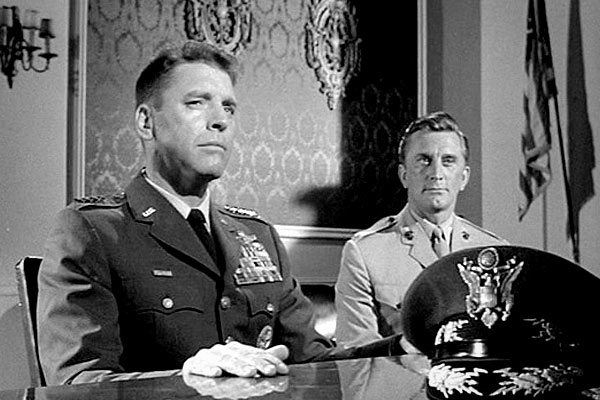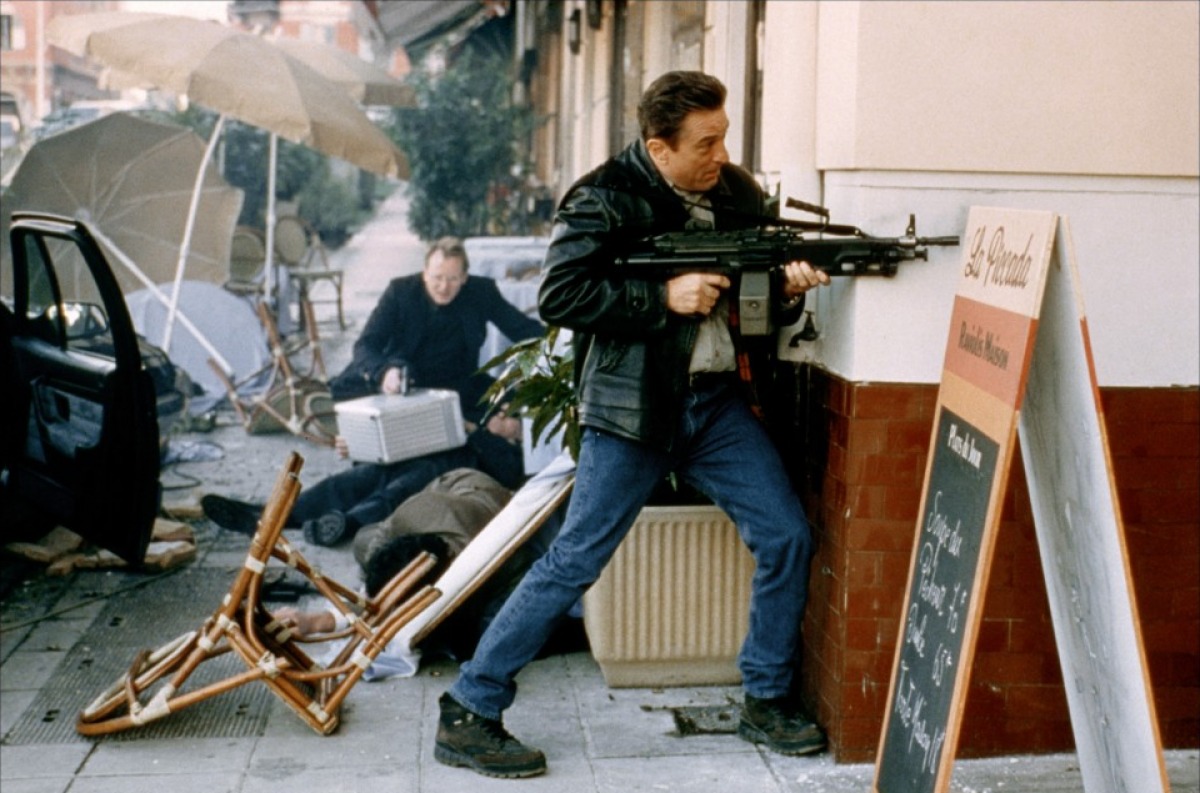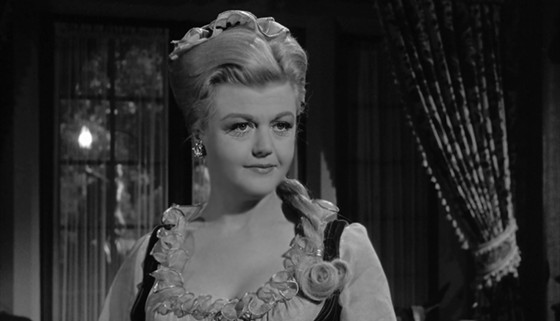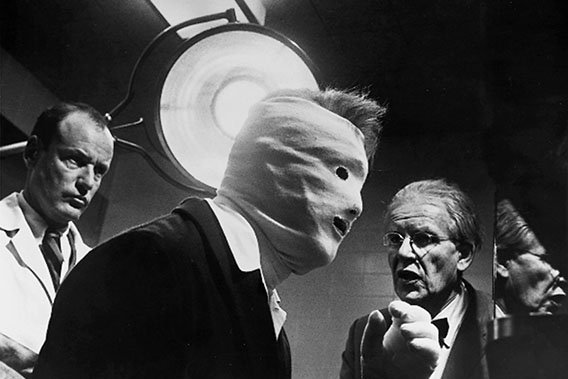5. Seven Days in May (1964)

Frankenheimer is perhaps the most important founding father of the political thriller genre. Naturally, he’s not solely responsible for it’s creation, but his stylistic and thematic approach to this type of movie – the way he utilized unusual angles and lenses to visually communicate a sense of paranoia and unease, aligned with his commitment to tackling what were then urgent, hot-off-the-presses issues – created something of a blueprint that other directors are still stealing from to this day.
“Seven Days in May” is not the most widely acclaimed of his forays into the genre (that distinction belongs, of course, to “The Manchurian Candidate”), but, despite having eluded canonical classic status for whatever reason, the film still stands as one of the very best political thrillers ever made; tense, taut and topical in equal measure, a ticking clock narrative that builds with masterful precision, a sign of both an expertly crafted screenplay but also of Frankenheimer’s keen sense of pacing.
Despite having a moral clarity that leaves little room for ambiguity (one of the elements that made “Candidate” so essential), the film is so willing to engage with the many polemics of the political climate of the time – from nuclear panic to institutional breakdown – that it has become a fascinating historical artifact of the collective psyche of America in the 1960s, and historically, it offers some chilling insights into how easily democratic institutions can crumble.
4. Ronin (1998)

As is the case with many American auteurs, John Frankenheimer’s career had a rough late period; his output in the ‘80s and ‘90s is mostly, aside from a few exceptions, a steep decline in quality from his earlier classics. There are many reasons for this phenomenon with older directors, but it’s not entirely due to dwindling talent – more often than not, these filmmakers simply no longer have the influence necessary to develop their own projects, and therefore have to get by on subpar gun-for-hire gigs.
“Ronin” is a phenomenal example of what happens when you give a seasoned, masterful craftsman the right material and provide him with enough money to gather all of the right ingredients: you get one of the very best action movies of the ‘90s. Granted, not everyone will be equally excited by the conflation of titanic genre names happening in this movie and, for them, this may seem like a merely well-executed but fairly generic caper.
However, true genre fiends who know that “Ronin” is Robert De Niro, David Mamet and Frankenheimer doing a modern Jean-Pierre Melville film will understand how special this movie really is. It is a sort of a culmination of 40 years worth of sophisticated crime thrillers; the kind of mid-budget, accessible, intelligent, serious-minded but deeply entertaining and, most importantly, expertly crafted action film that has all but disappeared. “Ronin” is the final word both for Frankenheimer’s career and also for this style of filmmaking – and it’s the best conclusion one could hope for.
3. The Manchurian Candidate (1962)

By far the most widely celebrated, studied and discussed of all Frankenheimer’s films (if not, at least in the opinion of this writer, necessarily his best), “The Manchurian Candidate” is one of those monolithic classics of cinema that has all but exhausted conversation – everything of meaning there is to be said about this movie has been covered by many critics over the decades, in a much more thorough and insightful way than is possible to convey in the limited blurb space of a list like this.
And there’s reason for such praise: functioning both as a straight thriller and as a satire of Cold War paranoia, the film manages to cobble together Oedipal psychological undertones; an ironic critique of McCarthyism; an earnest doomed love story; and a propulsive mystery plotting into a cohesive whole. In fact, it’s easy to forget nowadays, in light of the movie’s canonically accepted success, how deeply experimental “The Manchurian Candidate” really is, not only narratively, but especially in style, featuring a lot of avant-garde editing (think of the spectacular cross-cutting in the first brainwashing scene) and incredible juggling of tones; there are several scenes in the film that manage to be both funny and terrifying at the same time.
And this is all without mentioning the individual sustained set pieces of the movie, which are masterpieces themselves even when stripped of the larger context to which they belong, most notably the assassination attempt of the climax. The movie does have faults, to be sure (Janet Leigh’s character is a constantly baffling presence that adds nothing), making it less than perfect – but it’s close enough.
2. The Train (1964)

Despite having made some of the finest, most daring and innovative American movies of all time, Frankenheimer wasn’t afforded a blank check throughout his entire career; there was only a brief time in which he had complete creative control – precisely that incredible run in the ‘60s that comprises the high point of his work. And of those movies, there are particularly two in which it’s clear he was able to completely fulfill his vision – not coincidentally, far and away his two best.
The first is “The Train,” a movie with such a troubled production that the original director, Arthur Penn, was fired three days into filming since star Burt Lancaster didn’t care for his approach to the material – which would’ve been much more understated and character-focused, contrary to the wishes of Lancaster, who wanted to make an action picture. The actor chose Frankenheimer as his replacement and the producers, desperate to get back to filming, had no choice but to give in to the director’s demands, basically allotting him free rein.
And, no disrespect to Penn, a very good filmmaker responsible for some paradigm shifting movies, but it’s impossible to imagine him making “The Train,” or rather, it’s painful to even consider his low-key version over Frankenheimer’s visceral, propulsive, muscular, economical, exhilarating masterpiece. It’s the purest that cinema can be: moving images, sound and action communicating everything you need to know; not only concrete, plot related information, but also complex ideas regarding character and theme (Frankenheimer’s stance on the waste of human life in the name of art is very clear, from the way he’s keenly interested in the minutia of labor, the difficulty of it and its value to the mission).
In fact, it could be argued that the only person who rivaled Frankenheimer’s understanding of cinema as a tool for storytelling through pure action was George Miller, 51 years later, with “Mad Max: Fury Road.” Masterpieces such as these are few and very far between, but these movies satisfy a hungry action fan for five decades.
1. Seconds (1966)

The failure and elusion of the ‘American Dream’ is high in the running for the most played out theme in American cinema; the ennui of middle-class suburban people has been one of the foremost preoccupations in the minds of average filmmakers for at least 50 years. But even if it hadn’t been done to death for the past five or six decades, there would be no need to explore this topic any further, since in 1966 John Frankenheimer made the absolute greatest rumination on the idea with “Seconds.”
But even a compliment like that is selling short the achievement of the movie, since “Seconds,” despite its very specific intentions toward critiquing uniquely American aspirations, also possesses a universality that makes it even richer: this is one of the most chilling movies about the existential despair of the modern man, regardless of nationality. It’s Lynchian before Lynch; it’s the best Kafka adaptation despite not being a Kafka story; it’s a horrifyingly scary movie in which the horror is not a monster or a supernatural element, but the inescapable fact that you can’t get away from yourself.
And that’s only scratching the surface of the film’s thematic richness, which can be interpreted in any number of equally valid ways, given the cryptic but thoughtful nature of the narrative. And if that wasn’t enough to consider “Seconds” a masterpiece, Frankenheimer and legendary cinematographer James Wong Howe made sure to create one of most visually brilliant, avant-garde and pioneering movies of all time: even if you only see “Seconds” once, the high contrast, fish-eye lens, black-and-white compositions will be permanently ingrained in your mind. And that’s even without mentioning the spectacular production design (which becomes even more memorable due to how Frankenheimer’s and Howe’s camera captures and distorts the environments) or the gobsmacking editing.
Basically, “Seconds” is one the greatest films ever made, a masterpiece in every conceivable way, textured and deep both aesthetically and thematically. One for the history books.